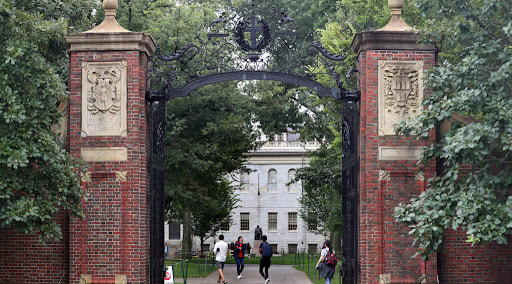|
(Image c/o David L. Ryan/The Boston Globe via Getty Images) By Anthony Romero News Reporter Rising tensions surrounding the Israel-Hamas War have escalated on Harvard’s campus as it struggles to mediate in the face of strong emotions coming from both sides. On October 7th, a letter penned by the Undergraduate Palestine Solidarity Committee and co-signed by 33 other student organizations was posted on the group’s Instagram, condemning the Israeli government and stating it is “entirely responsible” for the violence occurring overseas. The letter served as a response to the surprise Hamas attack that was met with Israeli retaliation, claiming the lives of 1,300 people and injuring 4,562 others during the initial attack on Oct. 7th, as per reports from the UN by Israeli officials.
As the letter started to circulate, it sparked a national backlash and a massive uproar among Harvard’s most influential alumni and donors. In its efforts to maintain an aura of neutrality, the university runs the risk of alienating concerned students and faculty with its extended silence. “In nearly 50 years of Harvard affiliation, I have never been as disillusioned and alienated as I am today,” stated former Harvard president Larry H. Summers on X, formerly known as Twitter. Dr. Summers was also critical of the university’s failure to denounce the students’ statement, a sentiment also shared by other members of the Harvard community. On Oct. 10th, Bill Ackman founder and CEO of Pershing Square Capital Management called for Harvard University to release the names of the affiliated students for the purpose of “blacklisting” those students from their potential hiring pools. As reported by The Harvard Crimson, this ongoing controversy and the growing demand for names has resulted in a number of websites releasing student information and doxxing close family members. A billboard truck, sponsored by conservative media group Accuracy in Media, has also been seen driving around the college town as recently as late last week displaying the names and photos of suspected students, alongside messages accusing them of antisemitism. The conflicting reactions from the Harvard community have highlighted a wider discussion of the application of free speech within the divided campus. The open declaration by Wall Street and big law leaders to refuse the hiring of students has led many to view this as a genuine threat and are intimidated by the sight of trucks parading their classmates’ information in public. Former president of the American Civil Liberties Union Nadine Strossen has likened the collecting of names to the McCarthy-era blacklists, labeling the threats to people’s future careers as an overreaction and an obstacle to “more thoughtful and less categorical pronouncements” on Harvard’s campus. Erwin Chemerinsky, Dean of UC Berkeley’s School of Law, condemns the truck’s public intimidation of students but simultaneously recognizes that “you can’t express your views and then say, ‘Those who criticize me are chilling my speech.’” On Oct. 12th, Harvard President Claudine Gay released a follow-up video rejecting terrorism and hate, as well as the harassment and intimidation of individuals in the community. Gay reaffirms the college’s dedication to free expression and establishes in a previous statement that although students and affiliated groups reserve the right to speak for themselves, this does not extend to Harvard leadership or the university itself.
0 Comments
Leave a Reply. |
StaffMadison Sciba '24, Archives
November 2023
Categories |


 RSS Feed
RSS Feed